Top Ten Singers Who Frequently Use or Used Double Tracking
In audio recording, double tracking is basically the process of recording a musical part (typically a guitar part or the lead vocals) and then recording it again, thereby doubling it and giving it a stronger sound. It is way more prominent than you would think, although some vocalists prefer to either use delay or stitch together multiple takes to get the right sound. There is also a second method called "Automatic Double Tracking", where the part is split off through a tape delay by a few milliseconds, giving the illusion of double tracking without requiring multiple takes. Double tracking is not necessarily a sin; if done correctly, the listener won't notice and it will make a stronger-sounding production. But if done wrong, the lead vocals will have some sync issues. A good example of this is the Beatles version of Matchbox. Feel free to add more examples; if so, give me more background on how much they used double tracking. John Winston Ono Lennon, MBE (9 October 1940 - 8 December 1980) was an English singer and songwriter who rose to worldwide fame as a co-founder of the Beatles, the most commercially successful band in the history of popular music. He was assassinated by Mark David Chapman on December 8, 1980 at age... read more
John Winston Ono Lennon, MBE (9 October 1940 - 8 December 1980) was an English singer and songwriter who rose to worldwide fame as a co-founder of the Beatles, the most commercially successful band in the history of popular music. He was assassinated by Mark David Chapman on December 8, 1980 at age... read more The Beatles are considered to be the most famous users of double tracking, with John Lennon using it the most of all. In fact, he motivated Ken Townsend, one of the engineers at Abbey Road Studios, to invent the first automatic double tracking system after he got tired of having to do multiple vocal takes.
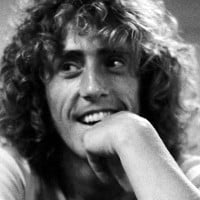 Roger Harry Daltrey, is an English singer and actor. In a music career spanning more than 50 years, Daltrey came to prominence in the mid 1960s as the founder and lead singer of the English rock band The Who, which released fourteen singles that entered the Top 10 charts in the United Kingdom during... read more
Roger Harry Daltrey, is an English singer and actor. In a music career spanning more than 50 years, Daltrey came to prominence in the mid 1960s as the founder and lead singer of the English rock band The Who, which released fourteen singles that entered the Top 10 charts in the United Kingdom during... read more Roger Daltrey frequently used double-tracking throughout the Sixties. It wasn't until Who's Next that he didn't use it as much.
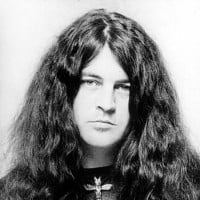 Ian Gillan is an English singer and songwriter. He originally found success as the lead singer and lyricist for Deep Purple, and the original singer on the rock opera concept album Jesus Christ Superstar by Andrew Lloyd Webber, where Gillan had the leading role (Jesus Christ).
Ian Gillan is an English singer and songwriter. He originally found success as the lead singer and lyricist for Deep Purple, and the original singer on the rock opera concept album Jesus Christ Superstar by Andrew Lloyd Webber, where Gillan had the leading role (Jesus Christ). Listen to the early Mark II records, particularly In Rock, and you will hear that a lot of the vocals are double tracked. Even on Child in Time, which means that he probably had to sing those high parts multiple times.
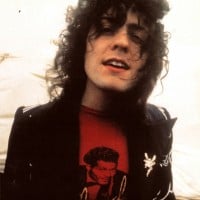 Marc Bolan, born Mark Feld (30 September 1947 – 16 September 1977) was an English singer-songwriter, musician, guitarist, and poet. He was best known as the lead singer of the glam rock band T. Rex. Bolan was one of the first pioneers of the glam rock movement of the 1970s. He died at age 29 in a... read more
Marc Bolan, born Mark Feld (30 September 1947 – 16 September 1977) was an English singer-songwriter, musician, guitarist, and poet. He was best known as the lead singer of the glam rock band T. Rex. Bolan was one of the first pioneers of the glam rock movement of the 1970s. He died at age 29 in a... read more I don't think there's a T. Rex record where Marc Bolan isn't double-tracked. I even saw a performance on the German show Beat-Club (if I remember correctly) where he recorded the basic track live with the band and they filmed him doing the secondary vocals and guitar solo. They integrated the footage of the two Bolans together (horribly, though; Beat-Club had awful graphics).
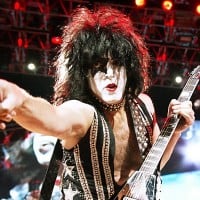 Stanley Bert Eisen, known professionally by his stage name Paul Stanley, is an American musician, singer, songwriter and painter best known for being the rhythm guitarist and co-lead singer of the rock band Kiss.
Stanley Bert Eisen, known professionally by his stage name Paul Stanley, is an American musician, singer, songwriter and painter best known for being the rhythm guitarist and co-lead singer of the rock band Kiss. Not just Paul but Gene too- pretty much all of the 70s Kiss records had double-tracked vocals.
 Bradley Edward "Brad" Delp was an American musician, best known as the lead vocalist of the rock bands Boston and RTZ.
Bradley Edward "Brad" Delp was an American musician, best known as the lead vocalist of the rock bands Boston and RTZ. Brad is an interesting case, as he didn't just double track his lead vocals, he also double tracked each harmony line- no wonder those Boston records sound massive!
 Kurt Cobain was born February 20, 1967, in Aberdeen, Washington. In 1987, he started the grunge band Nirvana, which became one of the most successful bands ever. He was a talented yet troubled grunge performer. Kurt Cobain became a rock legend in the 1990s with his band. He committed suicide at his... read more
Kurt Cobain was born February 20, 1967, in Aberdeen, Washington. In 1987, he started the grunge band Nirvana, which became one of the most successful bands ever. He was a talented yet troubled grunge performer. Kurt Cobain became a rock legend in the 1990s with his band. He committed suicide at his... read more I once read that Butch Vig said that when they recorded Nevermind, Butch motivated Kurt (who was reluctant) to double-track his vocals, telling him, "John Lennon did it". Apparently, he also had to trick Kurt into doing extra takes by telling him that something went wrong.
 Freddie Mercury (born Farrokh Bulsara, 5th September 1946 - 24th November 1991) was a Zanzibari-born British singer of Indian descent, songwriter and record producer, known as the lead vocalist and songwriter of the British rock band Queen. He also became known for his flamboyant stage persona and four-octave... read more
Freddie Mercury (born Farrokh Bulsara, 5th September 1946 - 24th November 1991) was a Zanzibari-born British singer of Indian descent, songwriter and record producer, known as the lead vocalist and songwriter of the British rock band Queen. He also became known for his flamboyant stage persona and four-octave... read more Freddie used it in certain songs during the mid 70s. I remember watching a video where Brian May listened to the multi-track tapes of Bohemian Rhapsody, and noted that the lead vocals on the "so you think you can stone me" section are not 100% in sync. Brian said that he kept some minor flubs on purpose to give the lead vocals a more natural sound.
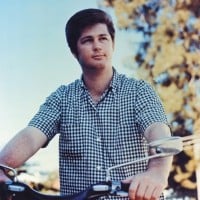 Brian Douglas Wilson is an American musician, singer, songwriter, and record producer best known for being the multi-tasking leader and co-founder of the Beach Boys.
Brian Douglas Wilson is an American musician, singer, songwriter, and record producer best known for being the multi-tasking leader and co-founder of the Beach Boys. In general, Brian Wilson insisted on double-tracking all lead vocals on Beach Boys albums from the Surfin U.S.A. album onwards, irregardless of who was singing.
 James Alan Hetfield was born on August 3, 1963. He is an American musician, singer and songwriter known for being the co-founder, lead vocalist, rhythm guitarist and main songwriter for the American heavy metal band Metallica.
James Alan Hetfield was born on August 3, 1963. He is an American musician, singer and songwriter known for being the co-founder, lead vocalist, rhythm guitarist and main songwriter for the American heavy metal band Metallica. Double tracking is a staple of Metallica's music, even though you may not realize it. Just listen to any of the isolated vocal tracks from the 80s.
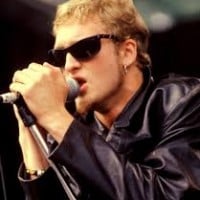 Layne Thomas Staley was an American musician who served as the lead singer and co-songwriter of the rock band Alice in Chains, which he founded with guitarist Jerry Cantrell in Seattle, Washington in 1987. Alice in Chains rose to international fame as part of the grunge movement of the early 1990s... read more
Layne Thomas Staley was an American musician who served as the lead singer and co-songwriter of the rock band Alice in Chains, which he founded with guitarist Jerry Cantrell in Seattle, Washington in 1987. Alice in Chains rose to international fame as part of the grunge movement of the early 1990s... read more Layne, in my opinion had the most unique voice among the singers listed. His use of double tracking on their records really helped to showcase the power of his vocal ability. He's also my favorite singer of the bunch, so that never hurts.
Alice In Chains used to do this a lot during their short period of time in their career back in the 90s. You can listen to a perfect example of Layne doing this in the song ''Brush Away'' from their Self-Titled record (commonly known as 'Tripod'). Other examples are ''Them Bones'' from their second album ''Dirt'', and the chorus of ''We Die Young'' from their debut album ''Facelift''. Needless to say, he always made it sound badass.
 Ariana Grande-Butera (born June 26, 1993) is an American singer, songwriter, and actress. Her four-octave vocal range has received critical acclaim, and her personal life has been the subject of widespread media attention. She has received numerous accolades throughout her career, including two Grammy... read more
Ariana Grande-Butera (born June 26, 1993) is an American singer, songwriter, and actress. Her four-octave vocal range has received critical acclaim, and her personal life has been the subject of widespread media attention. She has received numerous accolades throughout her career, including two Grammy... read more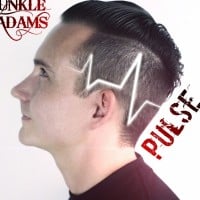 Curtis Adams, better known by his stage name Unkle Adams is a Canadian motivational speaker and rapper. He is known for his song "Original" which was reacted to by popular music reviewer Anthony Fantano. Adams received massive criticism from the song but also developed a fanbase that calls themselves... read more
Curtis Adams, better known by his stage name Unkle Adams is a Canadian motivational speaker and rapper. He is known for his song "Original" which was reacted to by popular music reviewer Anthony Fantano. Adams received massive criticism from the song but also developed a fanbase that calls themselves... read more